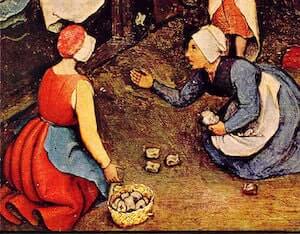I have posted a series of articles here recently about the words that have entered English from French, a process that began with the French-Norman conquest of England in 1066. Some people might refer to those words as "loanwords." But are they loanwords?
A loanword is a word at least partly assimilated from one language (the donor language) into another language (the recipient or target language), through the process of borrowing.
"Loan" or "borrow" may seem like odd descriptive words considering that nothing is taken away from the donor language and there is no expectation of returning anything, as in our typical usage of those words.
I had to research the term, and it gets more complicated. Loanwords may be contrasted with calques, in which a word is borrowed into the recipient language by being directly translated from the donor language rather than being adopted in (an approximation of) its original form.
Some calques in English:
A word, skyscraper, from French gratte-ciel, literally to “scrape-sky.
A phrase, "moment of truth" from Spanish, "el momento de la verdad," meaning a critical turning point.
Superman comes from the German Übermensch, a Nietzschean concept, that later becomes the comic hero.
Brainwashing originates with the Chinese xǐnǎo (洗脑), literally translated as “wash brain.”
Adam’s apple is a Latin borrowing of pomum Adami, a Biblical reference to the forbidden fruit.
The word "loanword" is itself a calque from German lehnwort, meaning a word borrowed from another language.
We also distinguish loanwords from cognates, which are words in two or more related languages that are similar because they share an etymological origin in the ancestral language, rather than because one borrowed the word from the other.
Here are a few -
English | Cognate Language | Cognate Word and Meaning
- Animal Spanish/French animal A living creature
- Hospital French/Spanish hôpital / hospital Medical facility
- Family French/Spanish famille / familia Group of related people
- Minute French/Spanish minute / minuto Unit of time
- Telephone French/Spanish téléphone / teléfono Communication device
Examples of loanwords in the English language:
café (from French café, which means "coffee"), bazaar (from Persian bāzār, which means "market"), and kindergarten (from German Kindergarten, which literally means "children's garden").
Here's an oddity - the word calque is a loanword, while the word loanword is a calque
Calque comes from the French noun calque ("tracing; imitation; close copy"). Loanword and the phrase loan translation are translated from German nouns Lehnwort and Lehnübersetzung (German: [ˈleːnʔybɐˌzɛt͡sʊŋ]
Loans of multi-word phrases, such as the English use of the French term déjà vu, are known as adoptions, adaptations, or lexical borrowings.
Although colloquial and informal register loanwords are typically spread by word-of-mouth, technical or academic loanwords tend to be first used in written language, often for scholarly, scientific, or literary purposes.






















